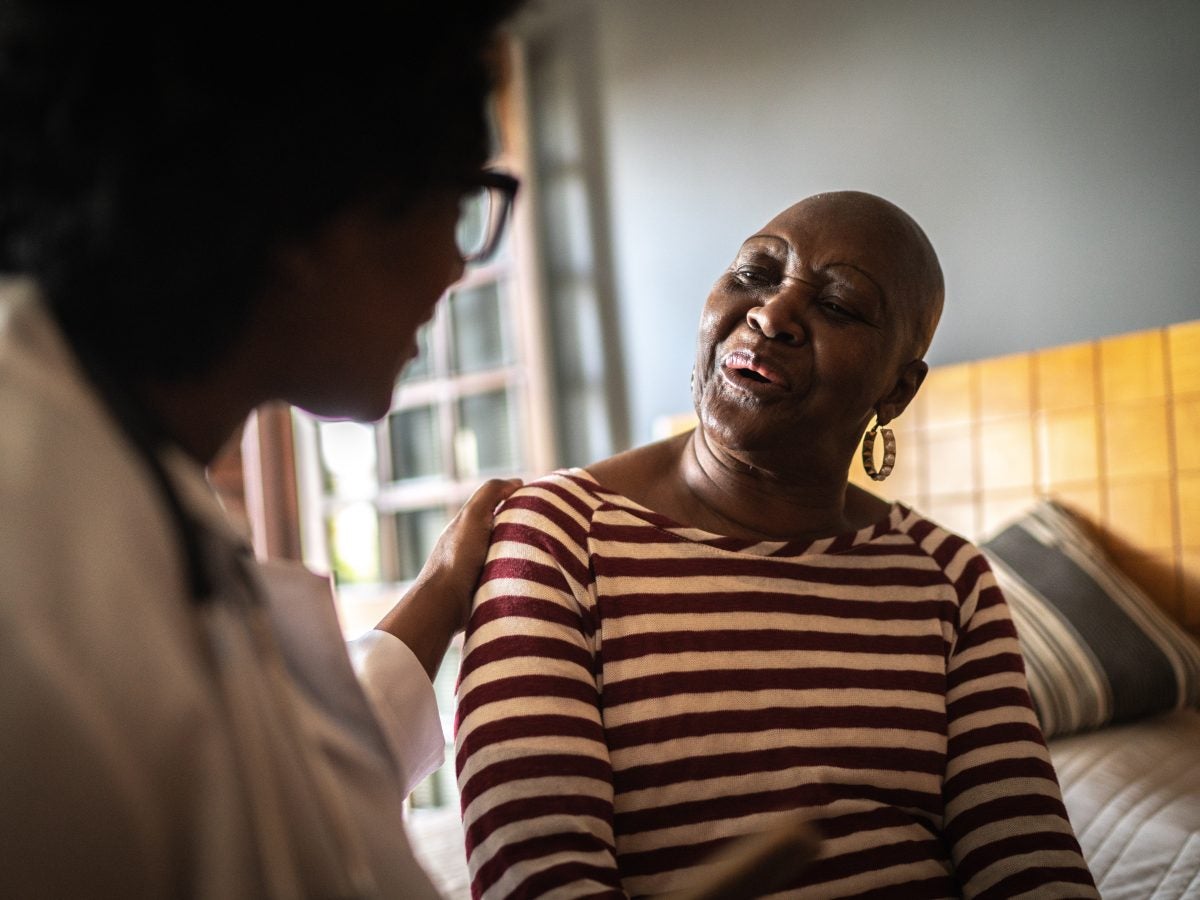
Have you ever wondered what clinical trials are all about? They’re research studies that are designed to learn more about how our bodies respond to investigational medicines. Medical research advancements can only happen through the efforts of many people, especially the patients who volunteer for clinical trials.
Merck, a global biopharmaceutical company, is dedicated to sparking conversations about clinical trials. We sat down with Dr. Adrelia Allen, Executive Director of Clinical Trial Patient Diversity at Merck, a driving force behind the company’s efforts to boost diversity in clinical trials, to dive into why this matters, what Merck is doing to help ensure diverse representation in their clinical trials, and why it’s time we all started talking about clinical trials within our community.
Noel: Why is it important for clinical trials to enroll diverse patients?
Adrelia: Did you know that according to U.S. Food and Drug Administration data from 2015 to 2019, only 24% of participants in clinical trials were from racial minority groups? But at the time, members of these communities made up nearly 40% of the U.S. population.¹ That’s quite a gap, isn’t it? These data highlight a significant lack of diversity in clinical trials. It is important that people of different ages, genders, ethnicities, nationalities, and socioeconomic backgrounds, as well as members of the LGBTQIA+ community, be represented in clinical research to ensure data generated from the clinical trial reflects the diversity of the populations we hope to serve.
Noel: I know there are many factors involved, but what are some reasons you think have contributed to members of the Black community being underrepresented in clinical trials and hesitant to participate in them?
Adrelia: I think part of it is deeply ingrained mistrust, Noel, something I’ve experienced firsthand. My father’s refusal of an MRI for prostate cancer diagnosis stemmed from this mistrust. Many people also simply don’t have enough information about clinical trials or don’t know how to get involved. Others worry about the time commitment and potential costs, like childcare and travel expenses. It’s crucial for us in the healthcare industry to build trust and provide clear, accessible information about clinical trials. We need to make sure patients know their rights are protected and that there are resources and assistance available for them. By addressing barriers to participation, we can help patients feel more confident and empowered to explore whether a clinical trial may be the right choice for them.
Noel: What is Merck doing to ensure diversity in its clinical trials?
Adrelia: Merck is dedicated to making sure our clinical trials are inclusive of people from different backgrounds. One key step we’re taking is choosing where to conduct our trials based on demographic data. This means we look at areas with large populations of groups that have historically not been included in clinical trials, like members of the Black/African American community, and set up trial sites there. This way, it’s easier for people in these communities to access and participate in these trials.
We’re also working with community organizations, colleges, and professional groups to provide resources, including educational materials about clinical trials. Additionally, we utilize a mobile clinical research unit at health fairs and community events to promote community engagement and increase clinical trial awareness and education in various communities. Our ultimate goal is to ensure our clinical trials represent the diversity of the communities who we hope to serve.
Noel: We’re excited to have you at this year’s ESSENCE Festival of Culture! Can you tell us more about your panel discussion, “Diversity in Clinical Trials” and why it’s important to initiate conversations about clinical trials now?
Adrelia: Absolutely! Our panel, “Diversity in Clinical Trials,” is on Sunday, July 7 at 1:10 p.m. CT in the Convention Center’s GBEF HQ area. It’s all about sparking conversations around this often-overlooked topic. It might seem like a big conversation to tackle, but it’s important to start somewhere. You may have lingering questions about clinical trials, and the answers can be found online, in educational resources, or through conversations with your doctor and members of your family or community.
Having these conversations is so important because it’s a chance to clear up any misunderstandings, share helpful info, and help everyone feel confident about their health choices. When we break down these barriers and speak openly, we can encourage more people to take steps to learn about clinical trials.
Learn more about their diversity in clinical trial efforts and how you can get involved at https://www.merckclinicaltrials.com/talktrials. Let’s continue this important conversation together!
¹Peters U, Turner B, Alvarez D, et al. Considerations for Embedding Inclusive Research Principles in the Design and Execution of Clinical Trials. Ther Innov Regul Sci. 2023. https://www.ncbi.nlm.nih.gov/pmc/articles/PMC9568895/
